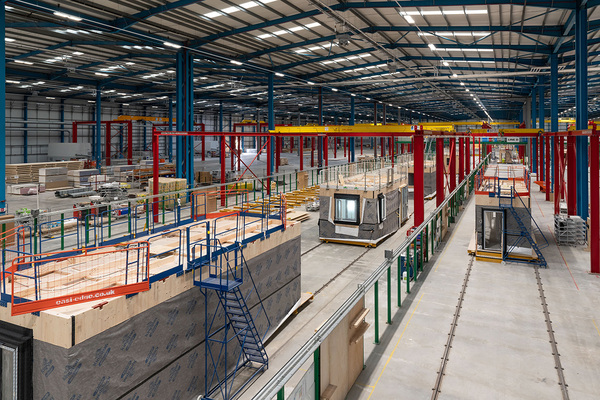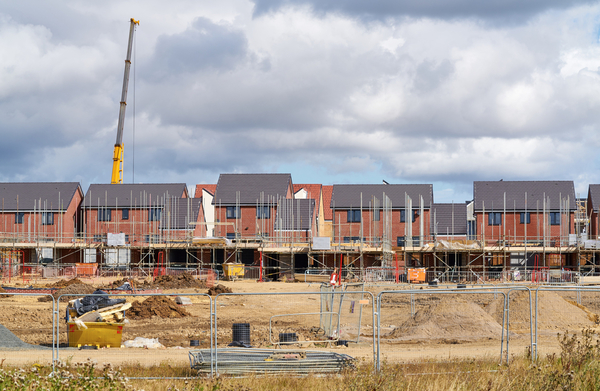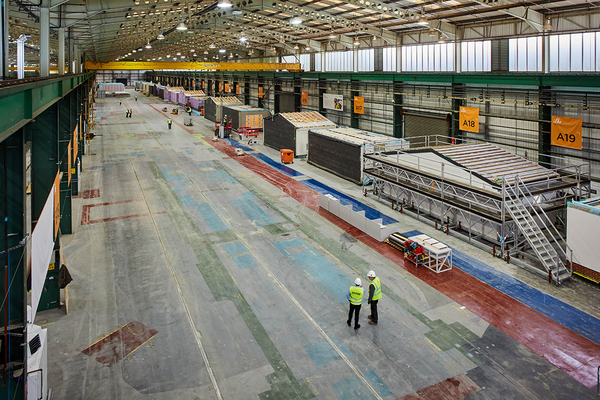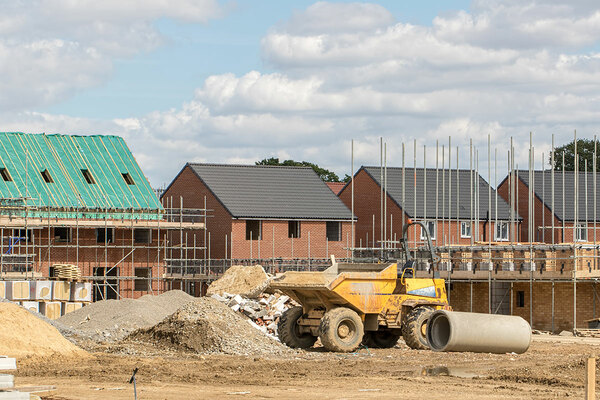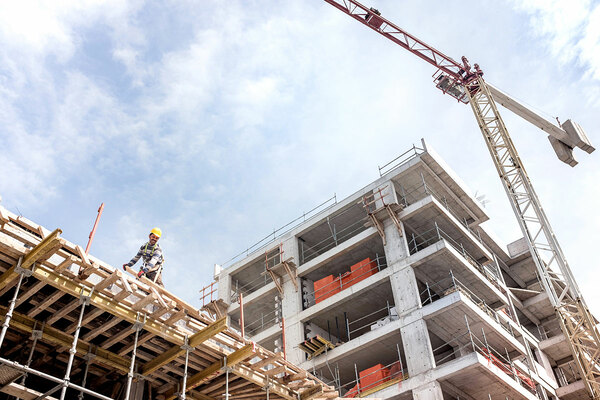You are viewing 1 of your 1 free articles
Ten-year social housing funding cycles could boost construction productivity by 70%, says report
Ten-year funding cycles for social housing could boost productivity in the UK construction industry by up to 70%, a new report has claimed.
Research carried out by Cast Consultancy and Harlow Consulting on behalf of the National Housing Federation (NHF) said construction productivity is dampened because building firms’ dependence on the volatile private housing market inhibits them from investing in new technologies and hiring or training up staff.
“Short-term funding pledges and policy instability drive uncertainty; firms are unwilling to invest without the reassurance of a long-term pipeline of work,” it said.
Productivity in the construction industry is around 20% lower than in the wider economy.
Skills gaps caused by a lack of staff training can also have “far-reaching impacts on quality”, the researchers claimed, leading to large defect remediation bills, project delays and safety issues.
Small and medium-sized builders are also unable to compete for work because of a lack of skills, which is “restricting business growth”.
But ministers could help solve these problems by moving from four and five-year social housing funding programmes to decade-long cycles, the report argued.
By providing construction companies with a long-term income source, 10-year cycles could speed up housebuilding and increase investment in staff and modern methods of construction, it added.
And it claimed that homes would be built with better efficiency and to higher standards.
The report also noted that the coronavirus pandemic “poses and immediate and serious threat for the construction sector”.
Most building sites were temporarily closed at the start of the outbreak and while many have since returned, social distancing measures are expected to slow work.
“Notwithstanding, it is vital that government takes every opportunity to maintain and increase levels of funding for affordable housing to create the stability and certainty needed for confidence in upskilling investment – which can create the potential for positive impacts on the wider residential construction sector,” the report added.
The Westminster government’s Affordable Homes Programme for England is currently worth £12bn over five years.
Related Files
Will Jeffwitz, head of policy at the NHF, said: “We’re already speaking to ministers and officials about the major role the sector could play in helping the country to bounce back from the disruption caused by coronavirus, and what funding we’d need to make that happen.
“While the amount of money that the government invests in social housing is a key issue, how they invest that money is also a crucial part of the picture. Long-term investment is vital if we want to support jobs and businesses involved in housebuilding.
“At the same time, it would help them develop new ways of doing things, making construction quicker and safer. All of this would play a major role in building the homes the country desperately needs, including social housing for people on lower incomes.”
Jennifer Brennan, director at Harlow Consulting, said: “Lack of stable funding in the system and current wider volatility leaves the housebuilding sector exposed to major vulnerabilities, such as low productivity and skills shortages.
“Maintaining and increasing levels of funding for affordable housing is not only a critical part of the construction sector’s post-Covid road to recovery, but also creates potential for wider and long-lasting social and economic benefits.”
Sign up for our development and finance newsletter
Already have an account? Click here to manage your newsletters

